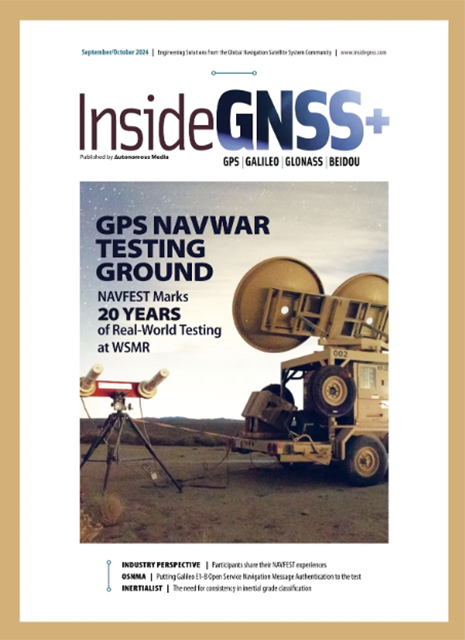
With control of Congress increasingly up in the air and a new administration due to take the reins in six months, organizations around Washington, are working hard to get friendly provisions in place before sympathetic officials have to change jobs.
Public records show that would-be broadband provider Ligado Networks, which hopes to rezone frequencies neighboring those used by GPS despite a proven interference risk, is on track to double its lobbying expenditures this year.
With control of Congress increasingly up in the air and a new administration due to take the reins in six months, organizations around Washington, are working hard to get friendly provisions in place before sympathetic officials have to change jobs.
Public records show that would-be broadband provider Ligado Networks, which hopes to rezone frequencies neighboring those used by GPS despite a proven interference risk, is on track to double its lobbying expenditures this year.
Ligado put $730,000 into lobbying in the first half of 2016 — a sum nearly equal to the $760,000 it spent in all of 2015 according to pubic records and OpenSecrets.org, a nonpartisan, nonprofit that publishes lobbying information.
Disclosure forms filed with the Senate indicate the firm was lobbying on fiscal year 2017 appropriations bill funding the Departments of Commerce, Justice, Science, and related agencies for fiscal year 2017.
But why? In a word — spectrum.
Within the Commerce Department, and funded by the bill, is the National Telecommunications and Information Administration (NITA), which manages the use of frequencies by the federal government. According to its website, NTIA is also the executive branch agency "principally responsible by law for advising the President on telecommunications and information policy issues."
Senate Report 114-239, the voluminous companion document containing the Appropriations Committee’s detailed spending instructions, includes a petite provision that might explain Ligado’s interest.
Under the subhead “Federal Spectrum Management,” the bill directs NTIA "to continue to evaluate options for repurposing spectrum for broadband in support of the President’s goal of making 500 megahertz [MHz] of spectrum available for wireless broadband use." The committee also orders NTIA to provide it with "quarterly updates on making 500 MHz of spectrum available for commercial mobile use, including the strategy for freeing up additional spectrum from Federal agencies."
Public records also indicate Ligado lobbied regarding the MOBILE NOW Act (the Making Opportunities for Broadband Investment and Limiting Excessive and Needless Obstacles to Wireless Act), a bill proposed April 28 by Sen. John Thune, R-South Dakota, the chairman of the Senate Commerce, Science and Transportation Committee.
The bill would require NTIA and the Federal Communications Commission (FCC) "to make available at least 255 megahertz of federal and nonfederal spectrum below the frequency of 6000 megahertz for mobile and fixed wireless broadband use," according to the bill’s summary.
It would also declare that it is U.S. policy to, among other things, "advance wireless broadband innovation and investment" and "maximize U.S. spectrum resources to benefit U.S. people." The later point echoes an argument made by Ligado predecessor LightSquared that broadband is a more valuable use of the frequencies Ligado hopes to rezone near the GPS band than assuring noninterference and GPS innovation.
In response to that argument, the National Space-Based Positioning, Navigation, and Timing Advisory Board undertook a detailed look at the economic benefits of GPS, although the last proposed phase of that study has not been completed.
(Interestingly, Ligado’s recently registered political action committee, the Ligado Networks LLC PAC, made only one donation by the time of its July 15 filing deadline — a $2,000 donation to the Friends of John Thune.)
Thune’s bill has one powerful, bi-partisan co-sponsor, Florida Democrat Sen. Bill Nelson, but not a lot of time. The Republican-controlled Congress has left little room in its schedule to do everything it must, like fund the government, before it dissolves in January. That time crunch will be exacerbated exponentially if the Republicans lose either the House or the Senate and lawmakers start scrambling to pass measures unlikely to get through the next Congress.
That’s not to suggest that little sympathy would exist next year for measures supporting more broadband spectrum, especially if that spectrum can support the new 5G mobile telecommunications standard. Although still evolving, this new standard promises to give mobile users faster speeds while using frequencies more efficiently.
Many officials, including FCC Chairman Tom Wheeler hope to see the promise of 5G realized.
"American leadership in 5G is a national priority," Wheeler said in prepared remarks to attendees at the Aspen Institute 2016 Communication Policy Conference on August 14. "With this home-field advantage, American companies can develop and implement software, firmware, and applications that will create innovation and employment opportunities in our country."
Ligado proposed earlier this year to make its terrestrial network a 5G system. As it happens, Wheeler’s term is not up until 2018.





